Gardening has been a cherished pastime for centuries, but why do we continue to find solace and joy in tending to plants in our modern world? For me, gardening is not just a hobby; it is a passion that allows me to connect with nature and nurture life. There is something incredibly satisfying about witnessing the stages of plant growth, from the tiny seeds sprouting to the blooming flowers or bountiful harvest.
Key Takeaways:
- Gardening provides a sense of pride and self-belief.
- It teaches important qualities such as patience, compassion, and self-reliance.
- Gardening offers a peaceful escape from judgment and a connection to nature.
- It requires love and positive energy to flourish.
- Gardening allows for the preservation of heirloom plants and contributes to genetic diversity.
Connecting with Nature: The Therapeutic Effects of Gardening
The act of gardening allows us to connect with nature and experience the profound healing benefits it offers for our mental health. It provides a therapeutic escape from the stresses of modern life, offering a sense of tranquility and peace. When we immerse ourselves in the world of gardening, we can momentarily detach from our worries and find solace in the beauty and serenity of nature.
Research has shown that gardening can have a positive impact on our mental well-being. It has been found to reduce symptoms of stress, anxiety, and depression, promoting a sense of calmness and relaxation. The physical activity involved in gardening stimulates the release of endorphins, which are known as the “feel-good” hormones, enhancing our mood and overall emotional well-being.
Not only does gardening have therapeutic effects on our mental health, but it also allows us to cultivate a deeper connection with nature. By nurturing plants and witnessing their growth, we develop a sense of responsibility and care for the environment. We become more attuned to the cycles of life and gain a greater appreciation for the natural world around us.
“Gardening is the purest of human pleasures.” – Francis Bacon
In addition to the mental and emotional benefits, gardening also provides a physical outlet for relaxation and exercise. The physical tasks involved, such as digging, planting, and weeding, can improve our strength, flexibility, and coordination. Engaging in these activities outdoors exposes us to fresh air and natural sunlight, which are vital for our overall well-being.
Whether you have a spacious garden or just a small balcony, gardening offers a multitude of benefits for our mind, body, and soul. It allows us to escape from the pressures of daily life, reconnect with nature, and find solace in the simple act of nurturing plants. So, grab your gardening tools, immerse yourself in the beauty of the natural world, and experience the therapeutic effects that gardening has to offer.
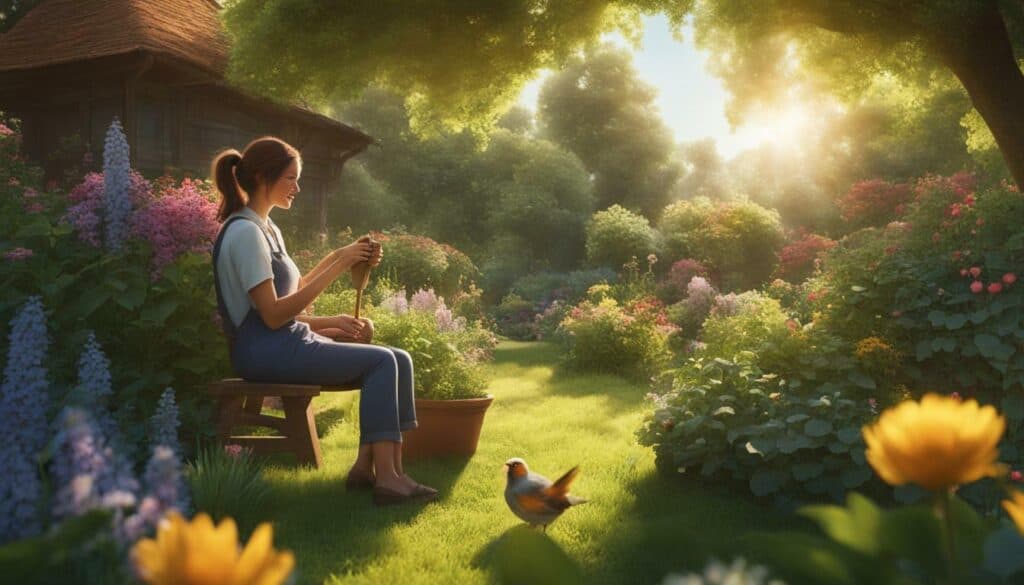
Nurturing Growth: The Physical Health Benefits of Gardening
Gardening not only nourishes our plants, but it also nurtures our own physical well-being, providing a unique blend of relaxation and exercise. As we engage in various gardening activities, we inadvertently engage in physical movements that contribute to our overall fitness.
Planting seeds or young plants requires bending, stretching, and digging, which can help improve flexibility and strengthen our muscles. Weeding and pruning involve repetitive movements that can improve dexterity and hand-eye coordination. Even watering plants with a watering can or hose can be a moderate form of aerobic exercise, as it requires walking, lifting, and carrying.
In addition to the physical movements involved, spending time in the garden exposes us to fresh air and sunlight, which provides us with essential vitamin D. Sunlight not only boosts our mood but also supports the absorption of calcium, promoting strong bones and a healthy immune system.
The physical benefits of gardening go beyond the visible results in our gardens. The time we spend tending to our plants allows us to escape the sedentary lifestyle that often accompanies our modern lives. Gardening keeps us active, promotes cardiovascular health, and can even contribute to weight management. It offers a form of exercise that is both enjoyable and productive, leaving us with a sense of accomplishment and well-being.
| Physical Health Benefits of Gardening: |
|---|
| Improved flexibility and muscle strength |
| Enhanced hand-eye coordination and dexterity |
| Moderate aerobic exercise for cardiovascular health |
| Exposure to sunlight for vitamin D synthesis |
| Supports weight management and overall fitness |
Gardening, with its physical benefits, not only allows us to grow and nurture plants but also encourages us to prioritize our own well-being. It is a holistic activity that nourishes the mind, body, and soul while allowing us to give back to the earth.
Soil and the Senses: The Therapeutic Power of Gardening
In addition to the physical health benefits, gardening also provides therapeutic effects. The connection we forge with nature while tending to plants can have a profound impact on our mental well-being and overall quality of life.
“Gardening is medicine that does not need a prescription and has no limit on dosage.”
The act of planting, nurturing, and witnessing the growth of plants can be extremely gratifying. It offers a sense of purpose and accomplishment, which can boost our self-esteem and overall happiness. Gardening allows us to be in tune with the natural rhythms and cycles of life, providing a sense of stability and peace amidst the chaos of our daily lives.
Research has shown that spending time in nature, even if it’s just in our backyard garden, can reduce stress and anxiety levels. Engaging with plants allows us to focus our attention and be present in the moment. The sights, smells, and textures of the garden engage our senses, creating a tranquil and meditative experience.
As we dig our hands into the soil, we are connecting with a primal and grounding force. The earthy scent of the soil and the feel of it between our fingers have a calming effect, reducing tension and promoting relaxation. Gardening can act as a form of therapy, allowing us to slow down, be present, and find solace in the beauty of nature.

- Increase self-esteem and happiness
- Reduce stress and anxiety levels
- Promote relaxation and tranquility
- Engage the senses and create a meditative experience
- Connect with nature and find solace
Gardening is a powerful tool for nurturing not only our physical health but also our mental and emotional well-being. It provides us with a space to heal, reflect, and find inner peace in our fast-paced and hectic lives. So next time you step into your garden, take a moment to appreciate not only the beauty of your plants but also the positive impact they have on your overall well-being.
Cultivating Virtues: Life Lessons Learned from Gardening
Gardening is more than just a hobby; it cultivates virtues that can enrich our lives and transform us into better individuals. One of the primary virtues that gardening teaches us is patience. We learn that plants take time to grow and flourish, and we must patiently nurture them through every stage. As we tend to our garden, we develop a deeper appreciation for the natural rhythms of life, understanding that growth cannot be rushed.
Compassion is another virtue that blossoms in the garden. Taking care of plants requires empathy and understanding. We become attuned to their needs, offering them the right amount of water, sunlight, and nutrients. In this process, we develop a sense of compassion not only for our plants but for all living beings, recognizing the interconnectedness of life. Gardening helps us cultivate a compassionate heart.
Furthermore, gardening fosters self-reliance. As we take responsibility for our garden, we learn to rely on our own knowledge and skills. We become problem solvers, finding solutions to challenges like pests, diseases, and adverse weather conditions. This self-reliance extends beyond gardening and can empower us in other aspects of life, giving us the confidence to face obstacles and overcome them.
| Virtue | Description |
|---|---|
| Patience | Gardening teaches us the value of waiting and nurturing growth over time. |
| Compassion | Taking care of plants cultivates empathy and a deep appreciation for all living beings. |
| Self-Reliance | Gardening fosters independence and problem-solving skills, empowering us to overcome challenges. |
“The glory of gardening: hands in the dirt, head in the sun, heart with nature. To nurture a garden is to feed not just the body, but the soul.” – Alfred Austin
Gardening is a practice that nourishes the mind, body, and soul. It provides a canvas for personal growth, teaching us virtues that extend beyond the garden walls. So, the next time you find yourself tending to your plants, remember that you are not only nurturing beautiful blooms but also cultivating patience, compassion, and self-reliance within yourself.

Escaping Judgment: Finding Peace in Gardening
In a world filled with judgment and noise, gardening provides a sanctuary of peace, allowing us to find solace and harmony within ourselves. Connecting with nature through gardening offers a calming retreat from the pressures of daily life, immersing us in the beauty and tranquility of the natural world.
When we step into the garden, we leave behind the stresses and expectations of society. Surrounded by blooming flowers, swaying leaves, and the gentle buzz of bees, we can truly be ourselves and embrace a sense of acceptance. Gardening provides a space where we are not judged by our appearance or achievements, but rather by our ability to nurture life and create beauty.
As we tend to our plants, we become attuned to the rhythms of nature. We observe the delicate balance of growth and decay, witnessing the cycle of life unfold before our eyes. In this process, we learn to appreciate the impermanence of things and find peace in the acceptance of change. Gardening teaches us to let go of expectations and embrace the ebb and flow of life, reminding us that nothing is ever truly stagnant.

Gardening also allows for introspection and self-reflection. As we dig our hands into the soil and nurture the seedlings, we have the opportunity to connect with ourselves on a deeper level. The act of gardening can be meditative, calming our minds and allowing us to be present in the moment. We find solace in the simplicity of tending to our plants, finding joy in their growth and taking pride in our efforts.
Whether it’s planting a single pot on a balcony or cultivating a sprawling backyard garden, the act of gardening brings us closer to the beauty and serenity of nature. It is a reminder that amidst the chaos of the world, there is always a space of peace and tranquility waiting for us outside our doorstep.
| Benefits of Gardening as a Form of Relaxation: |
|---|
| Provides a sanctuary of peace |
| Allows for introspection and self-reflection |
| Offers a sense of acceptance and non-judgment |
| Encourages mindfulness and being present in the moment |
A Labor of Love: The Time and Energy Behind Gardening
Gardening is a labor of love that demands our time, energy, and unwavering dedication to ensure the vibrant growth and well-being of our plants. It is a time-consuming task that requires us to be fully present, attending to the needs of each individual plant with care and precision. From watering them appropriately to keeping them free from weeds, every aspect of gardening requires our attention and commitment.
But despite the effort involved, gardening is an immensely rewarding experience. It allows us to witness the miraculous transformation of a tiny seed into a strong and thriving plant, filling us with a sense of pride and accomplishment. The act of tending to plants teaches us important qualities such as patience, as we wait for seeds to sprout and plants to flourish.
Gardening also fosters compassion, as we learn to empathize with the needs of our plants and provide them with the necessary care and support. It teaches us self-reliance, empowering us to take charge of our surroundings and create beauty through our own efforts. The process of nurturing and watching our plants grow imbues us with a deep sense of love and positive energy that radiates through our gardens.
Through gardening, we not only cultivate plants but also preserve heirloom varieties and contribute to the genetic diversity of plant species. By growing and saving seeds from these plants, we play a vital role in safeguarding their unique characteristics and ensuring their survival for future generations to enjoy. Gardening, therefore, becomes an act of environmental stewardship, allowing us to give back to the earth that sustains us.
Cultivating Life and Beauty: The Power of Gardening
As we immerse ourselves in the world of gardening, we discover that it is not merely a hobby but a way of life. It nourishes our mind, body, and soul, providing us with a profound connection to nature and the cycles of life. Gardening is a testament to our ability to create and cultivate, reminding us of our capacity to bring forth life and beauty.
| Gardening Tips | Gardening Quotes |
|---|---|
|
|
So, the next time you step into your garden, remember the time and energy you have invested in it. Appreciate the love and positive energy you have poured into your plants, knowing that through your dedication, you are not only nurturing the beauty around you but also nourishing your own soul.
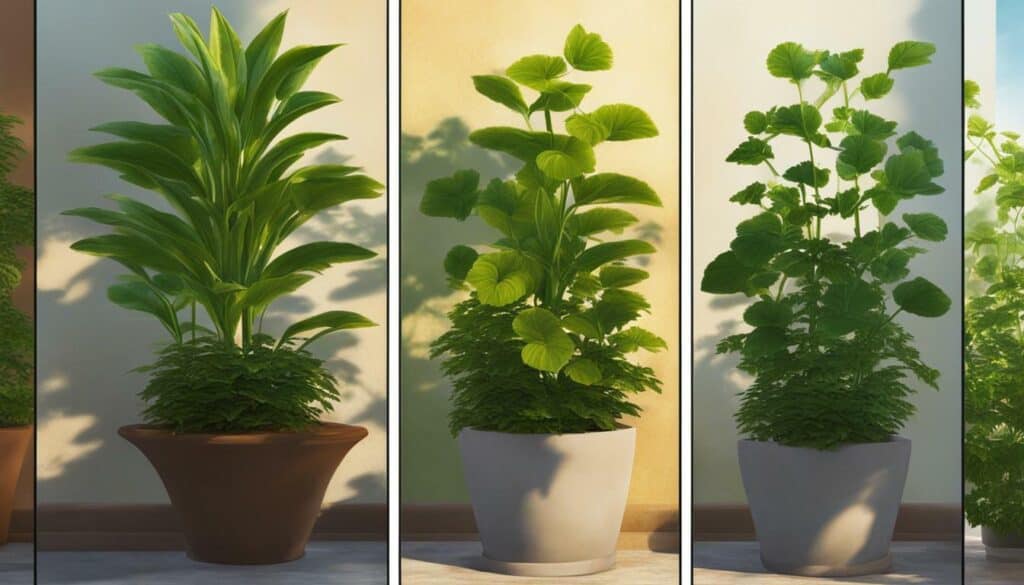
Take a moment to breathe in the fragrant blooms, to witness the vibrant colors that nature has bestowed upon your garden. As your hands touch the earth, feel the connection to the cycles of life and the enduring power of creation. Gardening is more than just a hobby; it is a testament to the love, dedication, and positive energy that we can bring to the world.
| Benefits of Gardening | Connecting with Nature Through Gardening |
|---|---|
|
|
Preserving Heritage: The Role of Gardening in Genetic Diversity
Gardening plays a vital role in preserving our plant heritage and promoting genetic diversity, ensuring the survival and evolution of unique and valuable plant varieties. By nurturing heirloom plants, we contribute to the conservation of traditional species that have been passed down through generations. These plants carry cultural significance and embody the history and traditions of our ancestors. Preserving heirloom plants allows us to maintain a connection to our roots and safeguard the diversity of our plant kingdom.
One of the key benefits of gardening is the opportunity to cultivate a wide range of plant species, including rare and endangered ones. By growing these plants in our gardens, we help prevent their extinction and contribute to the overall genetic diversity of our ecosystem. This diversity is crucial for the resilience of our environment, as it allows plants to adapt to changing conditions and helps maintain a balanced ecosystem.
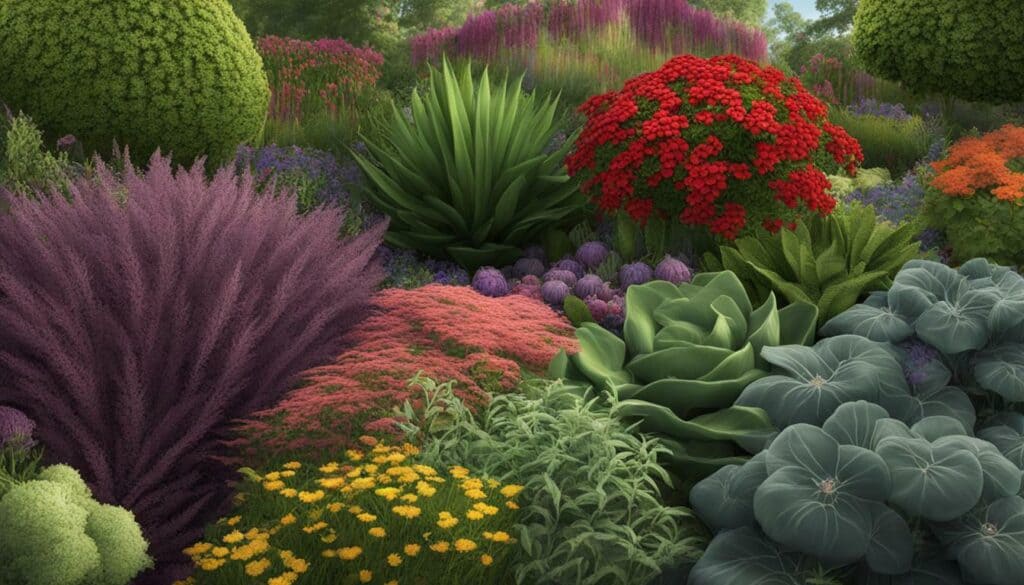
Gardening also provides a platform for the exchange of plant varieties and seeds, allowing gardeners to share their knowledge and expertise. Through seed swaps and community gardens, we can diversify our gardens with different plant varieties from around the world. This sharing of seeds not only enhances our own gardens but also contributes to the preservation of rare and unique plants that might otherwise be lost.
The Importance of Genetic Diversity
Genetic diversity is essential for the long-term survival of plant life on Earth. It allows for adaptations to changing environments, disease resistance, and the development of new traits that could be beneficial in the future. Without genetic diversity, plants become more vulnerable to diseases and pests, leading to the potential loss of entire plant populations. By engaging in gardening and preserving heirloom plants, we actively participate in the conservation of genetic diversity and ensure a sustainable future for our plant kingdom.
| Benefits of Preserving Heirloom Plants | Importance of Genetic Diversity |
|---|---|
| Conserves traditional plant varieties | Ensures adaptability to changing environments |
| Maintains cultural heritage | Enhances disease resistance |
| Preserves unique and valuable traits | Facilitates the development of new beneficial traits |
As gardeners, we have the power to make a difference by preserving heirloom plants and contributing to the preservation of genetic diversity. By doing so, we not only enjoy the beauty and bounty of our gardens but also play a crucial role in safeguarding the future of our planet’s plant life.
A Rich History: The Fascinating World of Achillea
The achillea plant stands as a testament to the rich history of gardening, offering an array of new hybrid varieties that combine beautiful colors with remarkable resilience. This perennial herb, also known as yarrow, has been cultivated for centuries and has become a beloved addition to gardens around the world. With its feathery foliage and clusters of small, vibrant flowers, the achillea plant adds a touch of elegance and charm to any landscape.
One of the remarkable qualities of the achillea plant is its ability to adapt to various growing conditions. From sunny meadows to rocky hillsides, this versatile plant thrives in diverse environments. Its hardiness and resilience make it a popular choice for gardeners of all skill levels. Whether planted as a border, a focal point, or mixed in with other flowers, the achillea plant adds a splash of color and texture to any garden.
With new hybrid varieties constantly being developed, the achillea plant offers an exciting range of options for garden enthusiasts. These hybrids combine the best traits of different achillea species, resulting in flowers with unique color palettes and improved characteristics. From soft pastels to bold, vibrant hues, the achillea plant offers a stunning array of choices that can complement any garden design.
The achillea plant is not just visually appealing; it also attracts beneficial insects such as bees and butterflies, making it a valuable addition to pollinator gardens. Its aromatic foliage and nectar-rich flowers provide a food source and habitat for these important pollinators. By cultivating achillea in our gardens, we contribute to the overall biodiversity and ecological balance of our surroundings.
| Variety | Colors |
|---|---|
| Saucy Seduction | Pink, red |
| Moonshine | Yellow |
| Pomegranate | Red, orange |
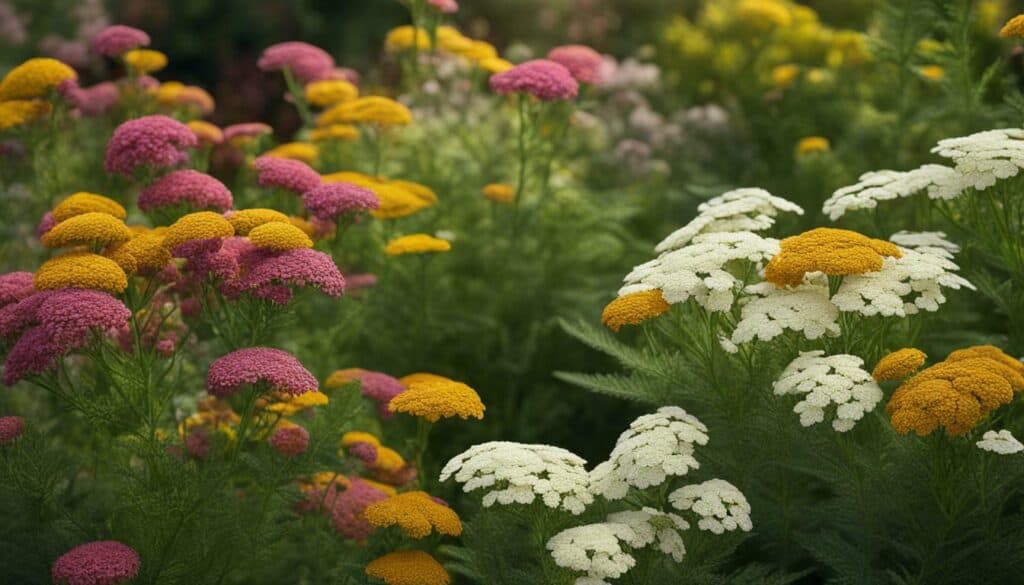
Whether you’re a seasoned gardener or just starting out, the achillea plant offers a wealth of possibilities. Its rich history, new hybrid varieties, and ecological benefits make it a captivating choice for any garden. So why not embrace the beauty and resilience of the achillea plant and add a touch of nature’s magic to your own outdoor sanctuary?
Conclusion
Gardening remains an enduring passion, providing numerous benefits for our mental, physical, and spiritual well-being, and serving as a powerful means of connecting with nature. The act of tending to plants and witnessing their growth allows us to cultivate important qualities such as patience, compassion, and self-reliance. It provides a sense of pride and self-belief as we nurture life from seed to bloom.
But gardening is more than just an activity; it is a therapeutic escape that offers a respite from the stresses of modern life. The act of digging in the soil, feeling the texture of earth between our fingers, and watching plants grow brings a sense of calm and tranquility. It allows us to escape judgment and find peace in the beauty of nature.
Not only does gardening nourish our minds and spirits, but it also has numerous physical health benefits. The act of caring for plants and engaging in physical tasks such as watering, digging, and weeding provides a form of relaxation and exercise. It keeps us active and engaged, improving our overall well-being.
Furthermore, gardening plays a crucial role in preserving our heritage and contributing to genetic diversity. Through the cultivation of heirloom plants, we ensure their survival for future generations. Additionally, plants like the achillea, with its rich history and vibrant hybrid varieties, bring color and beauty to our gardens while also adding to the diversity of plant species.
So, why do we garden? It is a labor of love that requires time, energy, and a genuine passion for nurturing life. It is a way for us to give back to the earth and create a harmonious connection with nature. Gardening fulfills our deepest yearnings for growth, beauty, and connection. It is a timeless pursuit that will continue to be cherished in modern times and beyond.
What Are Some Benefits of Gardening That You Can Share?
Gardening joys await you today. Aside from the evident beauty it adds to your surroundings, gardening offers numerous benefits. Engaging in this leisurely activity allows you to connect with nature, relieving stress and promoting relaxation. Furthermore, it provides an opportunity for physical exercise, enhances your mental well-being, and encourages sustainable living by growing your own food. Embrace the gardening joys that await you today and reap the plentiful rewards.
FAQ
Q: Why is gardening important?
A: Gardening allows individuals to grow, nurture, and experience the stages of plant growth. It teaches important qualities such as patience, compassion, and self-reliance. Gardening also provides a peaceful and surreal experience, offering an escape from judgment and a connection to nature.
Q: What are the physical health benefits of gardening?
A: Gardening can serve as a form of relaxation and exercise, contributing to physical well-being. It allows individuals to engage in physical activity while enjoying the outdoors, which can improve cardiovascular health, strengthen muscles, and increase flexibility.
Q: What virtues can be learned from gardening?
A: Gardening teaches virtues such as patience, as it requires waiting for plants to grow and develop. It also instills compassion, as individuals learn to care for their plants’ needs. Additionally, gardening fosters self-reliance as individuals take responsibility for the well-being of their plants.
Q: How does gardening provide an escape from judgment?
A: Gardening offers a peaceful escape from judgment by providing a serene and judgment-free environment. In the garden, individuals can connect with nature, find solace, and focus on their own personal growth without worrying about the opinions or expectations of others.
Q: Why is gardening a time-consuming task?
A: Gardening requires attention and care to ensure the well-being of plants. This includes tasks such as watering plants appropriately, tending to them daily, and keeping them free from weeds. It requires dedication, love, and positive energy for plants to flourish.
Q: How does gardening contribute to genetic diversity?
A: Gardening plays a vital role in preserving heirloom plants and contributing to genetic diversity. By growing and cultivating different plant varieties, gardeners help maintain a wide range of plant genetics. This is important for the sustainability and resilience of plant species in the face of environmental challenges.
Q: What is the history of the achillea plant?
A: The achillea plant has a rich history in gardening. It offers new hybrid varieties that combine sturdiness with vibrant colors, making it a popular choice among gardeners. The achillea plant adds beauty and diversity to gardens while also providing a glimpse into the fascinating world of horticulture.


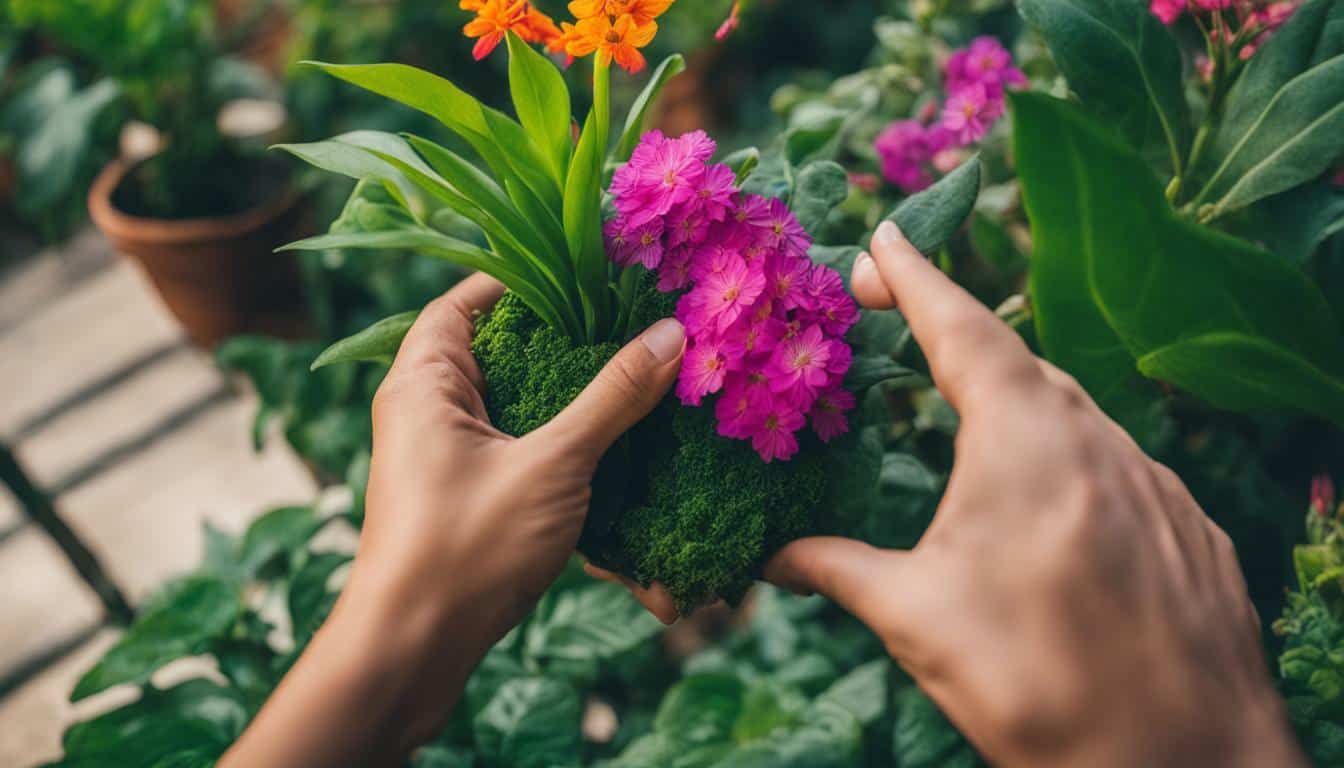
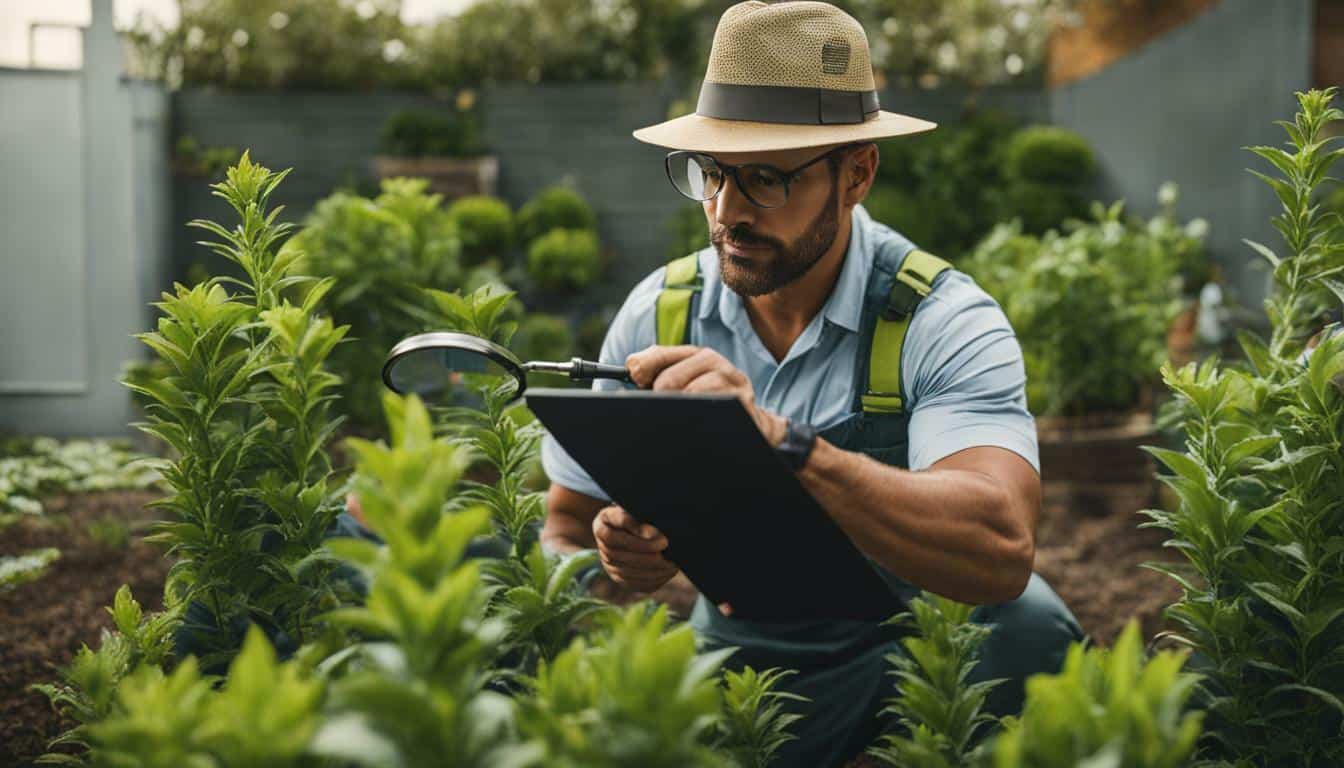

Leave a Reply